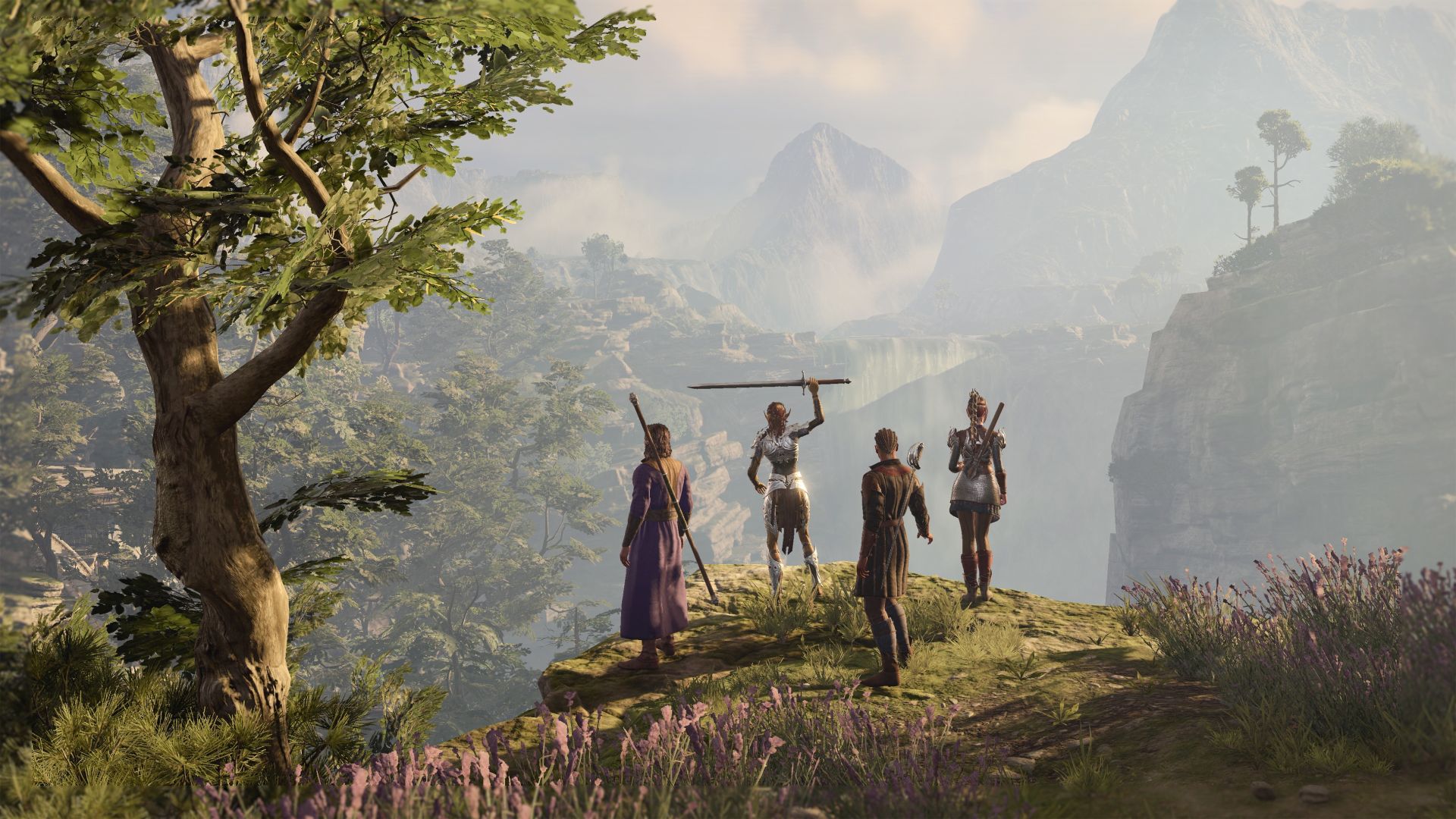
I think if you were to ask any person about their favorite period in history, barely anyone would mention the European dark ages. This historical period has usually been presented as drab, depressing and dour, unless a fantastical element is involved. It’s often referred to as the Dark Ages because there is a significant lack of historical records that can be traced back to this period. At least, that is what the common assumption is. Much akin to real European history, Pentiment is a tale that shines a light on what life and society were like in this often forgotten bout of time. But what is especially astonishing is that for a time centered on religion, memento Mori and the division between church and state, Pentiment finds and presents humanity in all this. Part detective story, part roleplaying and part adventure game, it is a title that revels in its world and characters and goes to the effort of letting the player live between the margins of the page.
Andreas Maler is a painter from the city of Nuremberg. Unmarried and in the pursuit of finishing his masterpiece, an artistic depiction of November in a scriptorium, he resides in Kiersau, Austria where he works at one of the last traditional abbey’s at the beginning of the 1500’s. It is a turning point in history, as the true medieval times come at a close, the town of Kiersau is caught between the wishes of those who own the land and the will of the Abbey that has persisted all this time. The player controls Andreas Maler and is able to forge his path as you learn more about the village, its citizens and the history of Kiersau. There is a fair amount of background and character building you can do as Andreas. His education, upbringing and personal interests play a large part in how certain people will respond to your questions and actions. In that sense, Pentiment follows Obsidian’s tradition of engaging roleplaying games where storytelling and choice is always front and center.
At least it would be, were it not for the jaw dropping presentation of Pentiment’s world and characters. The visual style is like a manuscript come to life, with characters drawn fairly detailed against soft, almost watercolor backgrounds. This storybook is breathing with life and even though animation is minimal and animated off-frame with intent, it never fails to amaze. The characters are clearly recognizable and understandable, which is important as there is a large cast of characters who change during the game. Yet I rarely felt truly lost, thanks to the schedule and notes you’re able to keep track of in the journal. The soundtrack feels appropriate as well. Most of the time there is just ambient noises, since the game tries to depict a sense of realism. But then you’ll enter the church where one of the monk’s is singing in the hall, or you learn about a story from one of the sisters in a gorgeous dreamlike sequence. It makes every moment feel earned and never failed to surprise me.
In a sense, gameplay feels almost like sidequests in a game like Majora’s Mask, but with a sense of urgency as there is no rewind option. As you explore new areas, talk to people in Kiersau and decide to pursue certain activities, time progresses. There is not a real-time clock, but every in-game day is divided into segments during which you can only interact with a specific group or person. As you want to learn more about the habits and activities of individuals, you’ll need to choose between what leads to pursue. Will you go dining with the Drucker family or would it be smarter to sit in on a sewing session to hear town gossip? Is it a smart idea to go out hunting with the suspect of a crime or would you rather go into the woods to find out why the blacksmith is angry with the stonemason? All these dilemmas may sound simple on paper, but these can be truly maddening decisions as you wish to learn more about certain individuals and can not be sure what is the “correct” path.
As you might be able to tell, I’m keeping story details to a minimum as much as possible. Going in blind really is the best approach, but trust me when I say that once the story gets going you will be unable to put your controllers down. That being said, this is a game that is heavy on the reading. Thankfully the developers added this handy dictionary feature. Every time a word or phrasing comes up that refers to a place, time period, background detail, religious text or even characters in-game, you can press the minus-button and are taken to the margins of the page. Here each word is explained and even characters are presented with a small portrait so you can learn who they are. That last bit can be overwhelming at first, but after the first chapter I was pretty familiar with everyone and could easily find my way around Kiersau. There is quite a bit of walking back and forth and not an easy way to backtrack, which can be a tad frustrating at times. It feels genuine and representative of the time period and the research put into the world, but does clash with the gameplay experience at times.
The Switch version overall is a solid experience. The framerate is prioritized over resolution and feels consistent across the game. The most notable drawback are the loading times. These are present on every version of the game, including the Xbox and PC version, but on Switch it does seem to take a second or two longer to load between different areas of Kiersau. It can be a bit of a drawback when trying to find your way to the next quest or exploring the town and talking to its inhabitants. Which isn’t helped when the loading screen is framed like flipping a page and needs a few more moments to be flipped. But considering every version has been designed with a loading screen in mind, you can get used to this in the Switch version just fine.
Pentiment left a deep and lasting impression on me. Not only does it use its world and characters to present a time period that has been neglected far too often, but it makes a point of reinforcing why this is a story that needed to be told. I love how you aren’t playing a strong knight, a ruler or a brilliant scientist here, but Andreas Maler, who is above all a person, like you or me. His interests, but especially his vulnerabilities and struggles make for an unusual protagonist in an even more unusual story. But throughout the adventure every step of the way, the gameplay, its visual design and story feels justified in saying that people in the Dark Ages were after all people. They weren’t dumb or ignorant, but lived in different times. So rarely do we see this type of life portrayed in this particular way in games, let alone let a player walk their own path through it all. The twists and turns will keep you engaged and by the end Pentiment left me feeling with a sense of joy, purpose and appreciation. I am quite certain that if you enjoy adventure games, story driven games or roleplaying games, you will too.








